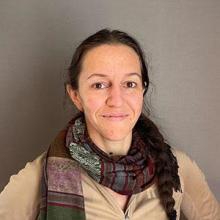
Improving surveillance of movement behaviours in childhood and adolescence: an international modified Delphi Study
Abstract Overview
Background: The steps required to achieve higher-quality and harmonised global surveillance of child and adolescent movement behaviours are unclear.
Purpose: To identify how to improve surveillance of movement behaviours, from the perspective of experts.
Methods: This Delphi Study involved 62 experts from the International Study of Movement Behaviours in the Early Years (SUNRISE) and the Active Healthy Kids Global Alliance (AHKGA). Two survey rounds were used, with items categorised under: 1) Funding, 2) Capacity Building, 3) Methods, 4) Other Issues. Expert participants ranked 40 items on a 5-point Likert scale from ‘extremely’ to ‘not at all’ important.
Results: We received 62 responses to Round 1 of the Survey and 59 to Round 2. The top identified priority was increased funding for surveillance- this would underpin the other priority actions identified: establishment of regional hubs to support surveillance; development of standardised surveillance protocols; improved measurement methods; improved human capacity in surveillance of human movement behaviours; greater stakeholder awareness of World Health Organisation (WHO) movement behaviour guidelines and strategies. We found no significant differences in priorities between low-middle-income (n = 29) and high-income countries (n = 30). There was a lack of agreement on using private funding for surveillance or surveillance research.
Conclusions. This study provides a prioritised and international consensus list of actions required to improve surveillance of movement behaviours in children and adolescents globally.
Practical implications: This work identifies the steps required for the desired transformation in the surveillance of movement behaviours throughout childhood and adolescence. Experts wish to avoid a narrow surveillance focus, for example only on moderate to vigorous physical activity (MVPA). Greater focus on the surveillance of specific domains and contextual factors might be more practical for population-level monitoring of trends over time, understanding inequalities, and responses to changes in policy.
Funding: None.
Additional Authors
Name: Rachel Andrew
Affiliation: Department of Psychological Sciences & Health, University of Strathclyde, Glasgow, Scotland.
Presenting Author: no
Name: John J Reilly
Affiliation: Department of Psychological Sciences & Health, University of Strathclyde, Glasgow, Scotland.
Presenting Author: no

